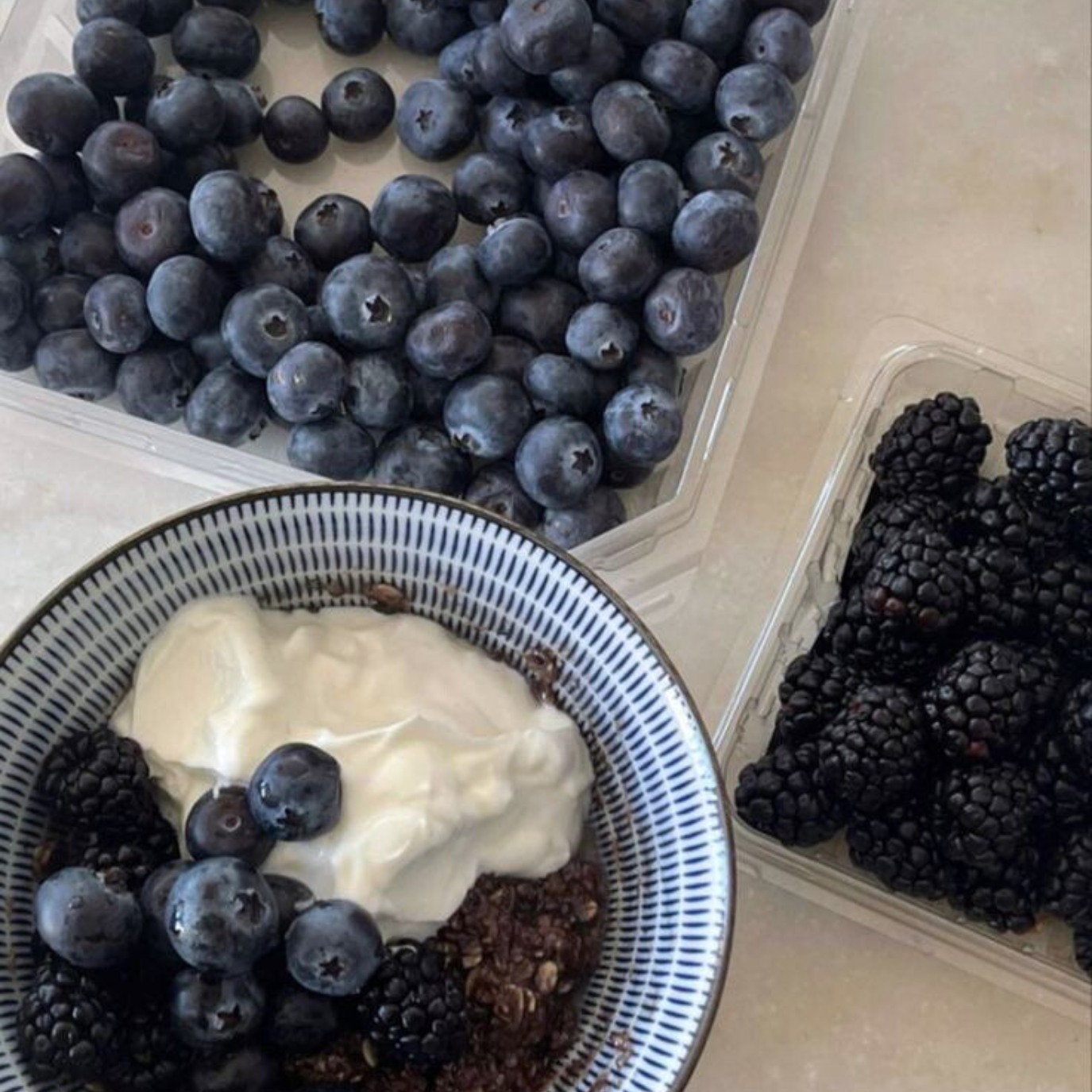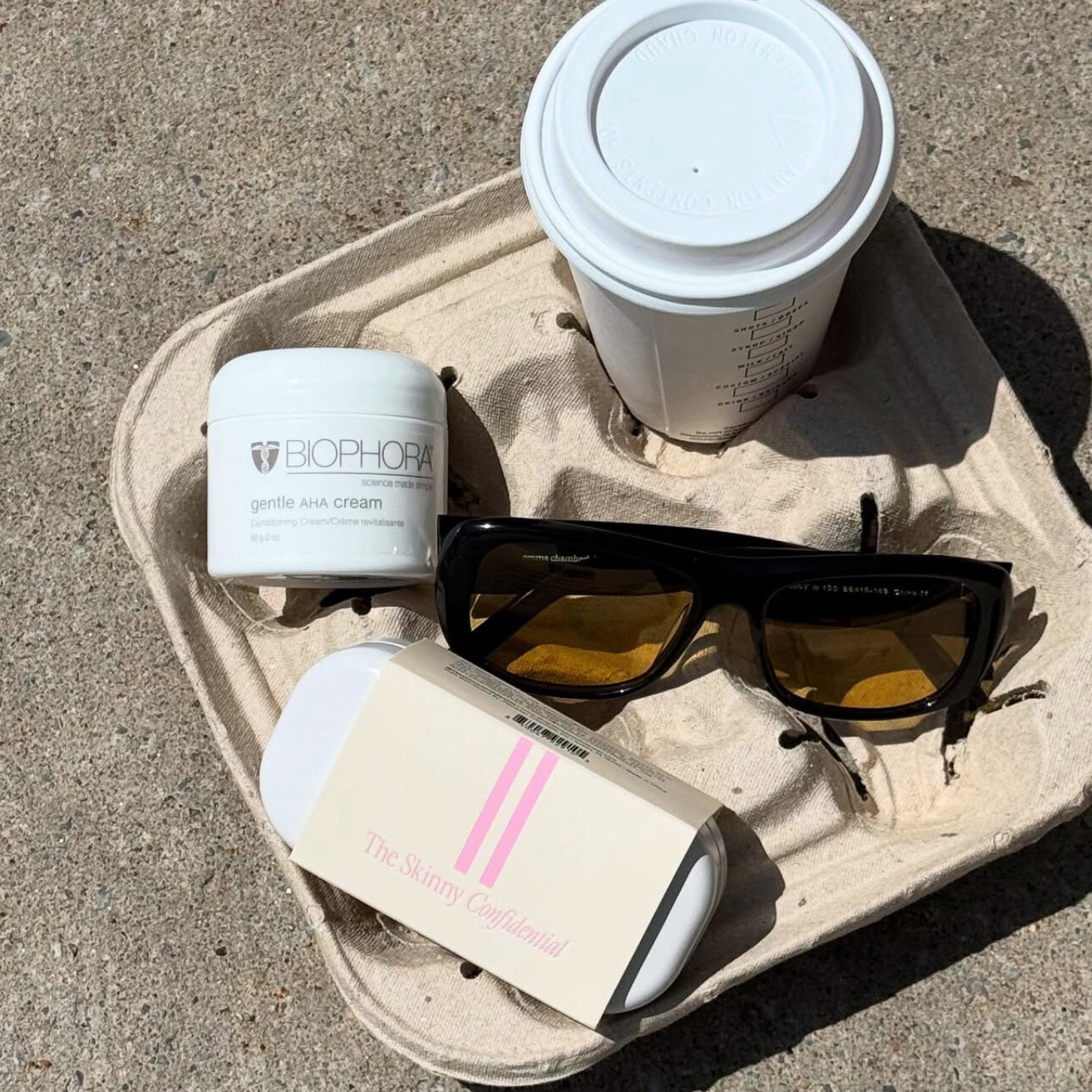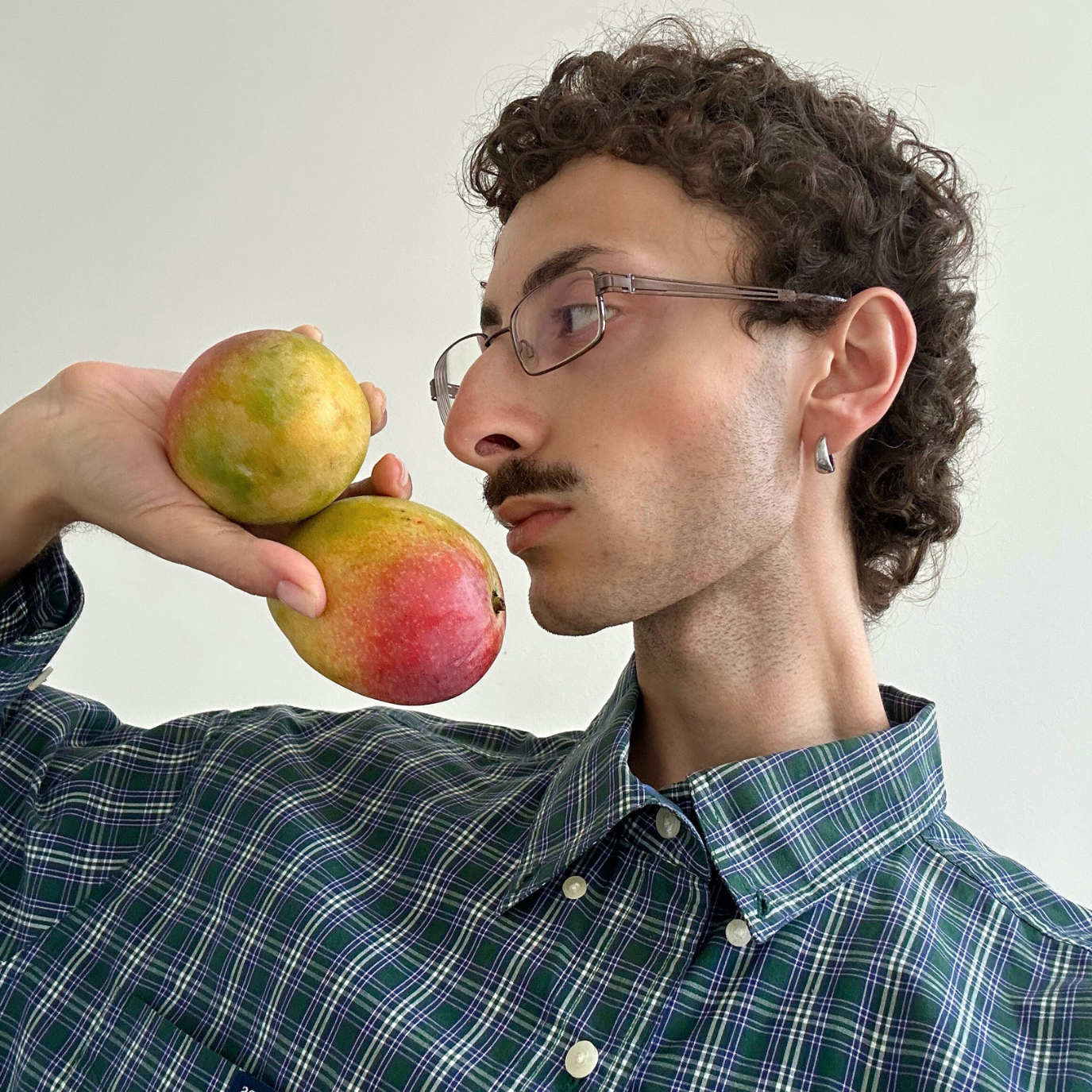
Building Better Skin: The Role of Protein & Healthy Fats in Collagen Production
The skin is our largest organ, yet unlike other organs, its connection to our diet and macros are often overlooked. As we—skinthuasiasts—know, skin health relies largely on collagen synthesis. The fibroblasts in our skin produce collagen and elastin, keeping our skin looking youthful, bouncy and dewy. So, how can protein and healthy fats encourage those fibroblasts to keep doing their job effectively? Let’s dive in.
Why Protein Is Non-Negotiable
Collagen is made up of amino acids, and without a steady supply of those, your skin just doesn’t have what it needs to regenerate. Think of protein as skin fuel.
Let’s break it down on a molecular level: Fibroblasts synthesize collagen by linking amino acids—mainly glycine, proline, and hydroxyproline—into long chains through peptide bonds. Inside fibroblasts, these amino acids undergo hydroxylation (a chemical reaction adding OH groups), which is crucial for collagen’s triple-helix structure and stability. Without enough amino acids from dietary protein, fibroblasts can’t complete these steps, leading to weaker collagen and less resilient skin.
When you eat quality sourced protein—like pasture-raised organic eggs, wild salmon, organic free-range chicken, or grass-fed bone broth—you’re delivering the exact ingredients your body needs to keep things smooth, firm, and glowy. It’s not necessarily about eating more protein, it’s about eating the right kind, consistently. My go-to quick dinner is often a grass-fed homemade burger!
Unfortunately, after the age of 25, we naturally start losing about 1% of our collagen each year. Which, yes, sounds small—but it adds up, and it shows.
It’s also why one of my favourite ways to start the morning is a quick collagen shot: lemon juice (the vitamin C also aids with collagen synthesis), a tablespoon of olive oil, and a scoop of marine collagen—stir it up, and throw it back. It’s anti-inflammatory, skin-supportive, and actually tastes better than it sounds. Starting the day with that (and a little protein soon after) sets the tone to support skin health throughout my day.
For our vegan and vegetarian readers, here’s a great resource on healthy protein sources!
Let’s Talk Healthy Fats
Protein gives your body the materials to make collagen, but fats help protect what you’ve built. Omega-3s (from wild fish, walnuts, flax seeds) and monounsaturated fats (like olive oil, greek yogurt and avocado) keep your skin barrier healthy, which is essential for locking in moisture and keeping inflammation low—two things collagen loves.
And here’s something a lot of people miss: vitamins A, D, E, and K—all major players in skin health—are fat-soluble. Meaning? If you’re not eating fat, you’re not absorbing them. No glow, no ‘Hailey level dew’. That viral glazed donut skin? It doesn’t just happen because of a serum—it starts with what’s on your plate. Not only are those vitamins fat-soluble, most supplements that you may be taking are fat-soluble, so having a healthy amount of fats is key.
Healthy, glowy skin isn’t magic (and isn’t entirely based on genetics according to the latest research). It’s nutrition, plus consistency. If you want collagen to work for you, you need to feed your body what it needs to make and maintain it—especially as time goes on. Prioritize protein. Don’t fear fat. Sip your lemon-olive oil-collagen shot.
Happy sipping,
Gabriella











Leave a comment